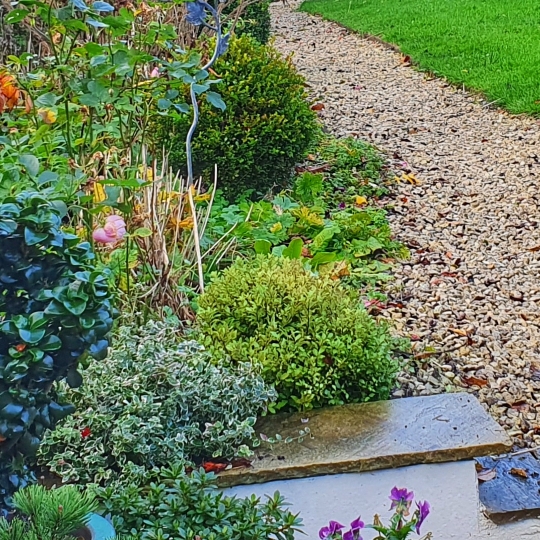
Pittosporum tenuifolium 'Emerald Star'
New Zealand Pittosporum 'Emerald Star'
Pittosporum are evergreen trees or shrubs and have fine, glossy foliage and are particularly suited to mild areas and seaside gardens in the UK. In frost prone areas, they need the shelter of a wall or to be grown in pots in a cool greenhouse or conservatory. Pittosporum tenuifolium and Pittosporum tobira. are the hardiest of the species, tolerating temperatures as low as -10C. Tenuiflorium is a compact, bushy, rounded shrub with thin black stems carrying oval, glossy, grey-green leaves which have white edges. It bears clusters of small, honey-scented purple flowers. 'Emerald Star' is a dwarf compact form with lime green foliage and black stems.
Contributed by @michelleh
-
Full sun to partial shade
-
Occasional watering
-
Frost Hardy: 23F (-5°C)
-
Moist and free draining
Common name
New Zealand Pittosporum 'Emerald Star'
Latin name
Pittosporum tenuifolium 'Emerald Star'
type
Trees or Shrubs
family
Pittosporaceae
ph
6.0 - 7.5 Acid - Neutral
Plant & bloom calendar
-
Best time to plant
full grown dimensions
 1.50 M
1.00 M
1.50 M
1.00 M
Pittosporum tenuifolium 'Emerald Star'
Pittosporum are evergreen trees or shrubs and have fine, glossy foliage and are particularly suited to mild areas and seaside gardens in the UK. In frost prone areas, they need the shelter of a wall or to be grown in pots in a cool greenhouse or conservatory. Pittosporum tenuifolium and Pittosporum tobira. are the hardiest of the species, tolerating temperatures as low as -10C. Tenuiflorium is a compact, bushy, rounded shrub with thin black stems carrying oval, glossy, grey-green leaves which have white edges. It bears clusters of small, honey-scented purple flowers. 'Emerald Star' is a dwarf compact form with lime green foliage and black stems.
Planting
From Early Spring TO Early Spring
Pittosporum like well-drained soil. The variegated cultivars and P. ralphii and R. crassifolium - which both make good hedges alongside P. tenuifolium - prefer full sun, while all other species will tolerate light shade. They need to be sheltered from cold and drying winds and benefit from an annual mulch. Plant them as single specimens or in groups of three or five - not more, because they can get quite big. For this reason they don't suit a small border, but in a large border they are excellent, behind herbaceous perennials or bulbs.
Propagation by cuttings
From Late Summer TO Mid Autumn
Semi hard wood cuttings are taken from the current years growth from late summer to mid autumn the bottom of the cuttings is hard and soft on the top. With a sharp knife take a cutting of about 14 cms, remove lowest leaves, dip end into rooting hormone, and place round the edge of a pot filled with a suitable compost, water well, they must remain moist till rooted, place under glass but in semi shade.








